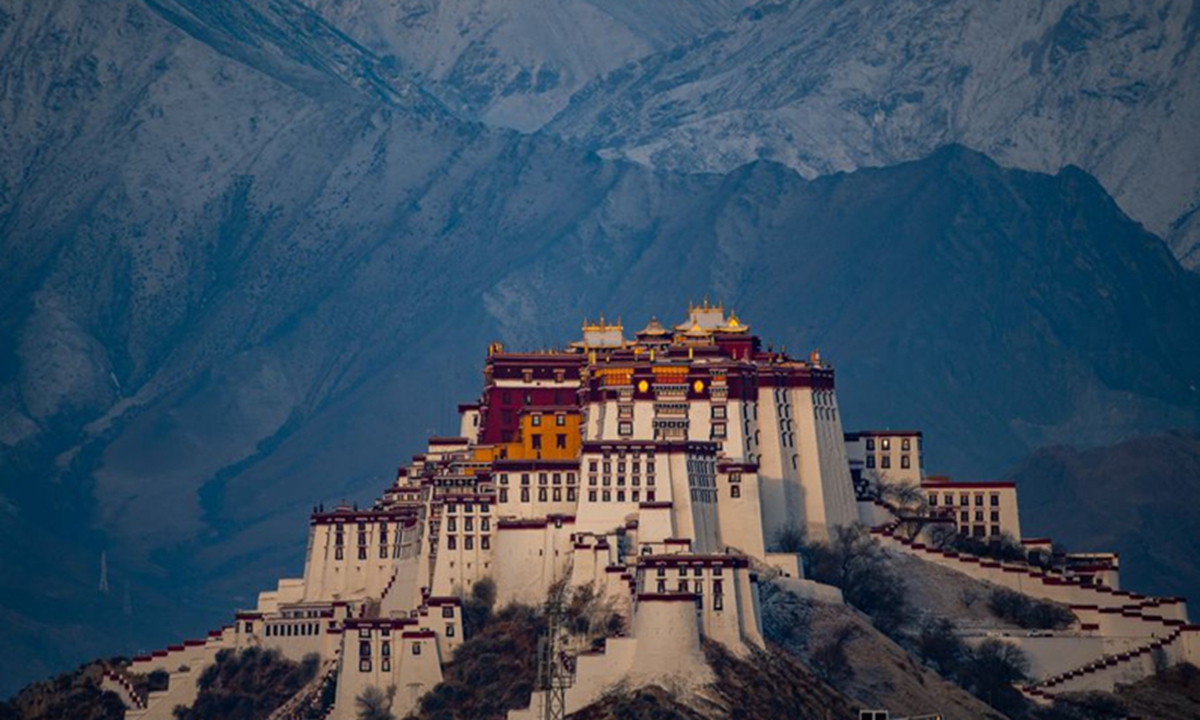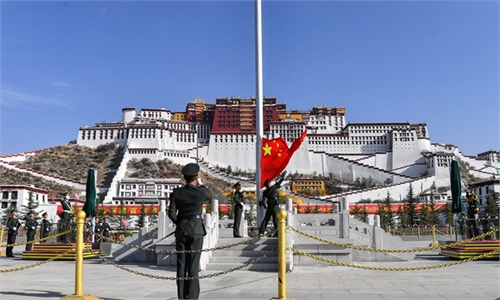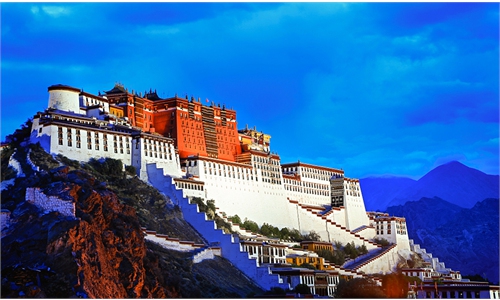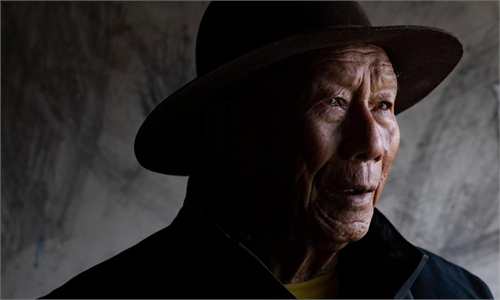Newly-elected Tibetan 'government-in-exile' will not change its 'independence' stance, internal conflicts exposed: observers

Potala Palace in Lhasa, Southwest China's Tibet Autonomous Region. File Photo:Xinhua
The so-called Tibetan "government-in-exile" has announced its "new political leader," but the new "government" will not change its essence of seeking for "Tibet independence", observers in China have said, noting that the election result has shown the exacerbated internal conflicts of the Dalai Lama's group, leading to a dark future for the separatists.
Penpa Tsering, former speaker of the "parliament-in-exile," was announced as Sikyong, or the leader of the illegal "Central Tibetan Administration (CTA)," on Friday, according to media reports. He took over from Lobsang Sangay, who had served in the position for 10 years.
Observers said that this year's election has exposed the internal conflicts that have been fomenting for the past couple of years among exiled Tibetans, and the election itself further intensifies the conflicts. "Old and new contradictions are intertwined."
Xiao Jie, a deputy director at the Institute for Contemporary Tibetan Studies under the China Tibetology Research Center, told the Global Times on Sunday that the conflicts not only come from a power struggle among different Tibetan groups, as the Kamba people have been holding the power of the "government-in-exile" for decades, but also from growing dissatisfaction against the Lobsang's administration. "Penpa Tsering and Lobsang Sangay have an open conflict with each other," Xiao said.
"Unlike Lobsang, who is fostered by the West and has a profound overseas backing, Penpa Tsering is a grassroots Tibetan elite who advanced his career in India," Xiao said. "He is totally loyal to Dalai Lama and the 'middle way approach,'" Xiao noted. "He is also aggressive in personality."
However, no matter which side takes the power of "government-in-exile," it will not change the nature of Dalai's group in agitating for "Tibet independence," experts noted.
"The so-called 'middle way approach' is to realize a Tibetan 'high degree of autonomy', and then independence," Zhu Weiqun, former head of the Ethnic and Religious Affairs Committee of the National Committee of the Chinese People's Political Consultative Conference, told the Global Times on Sunday. "This is impossible, and the essence of the approach has been seen through," he said.
"In the past decade, the Lobsang has seen one failure after another, and this situation will be the same ahead of Penpa Tsering," Zhu said.
Moreover, a realistic issue is that this new Sikyong might face the impact of the 14th Dalai Lama succession.
"Dalai Lama is of course the absolute soul in his group. After him, nobody will have such an influence. So the future of Dalai's group is totally bleak," Zhu said.
Xiao noted that there is a separation of political power and religious power, and the CTA's duties are mainly on administrating overseas Tibetans and asking for international support. "But the Sikyong is like a general manager in a company, he could never touch the board of directors."
Ned Price, the spokesperson for the US State Department, posted the department's congratulations to Penpa Tsering on Twitter on Saturday. "We look forward to working with him," Price said.
Since Lobsang has been supported by the US and has a Western background, he is very likely to return to the politics of exiled Tibetans, Xiao predicted. "And there would be a competition to fight for political resources from Western countries, who take the Tibetan issue as a tool."
Zhu noted that no matter what changes happen in the "Tibetan government-in-exile," China will focus on the stability and development of its Tibet Autonomous Region and holds no fantasy and hope regarding Dalai Lama's group.
Xiao believed that the Chinese government currently will in no way build any connection with the "Tibetan government-in-exile," and China will continue its policy in Tibet.




